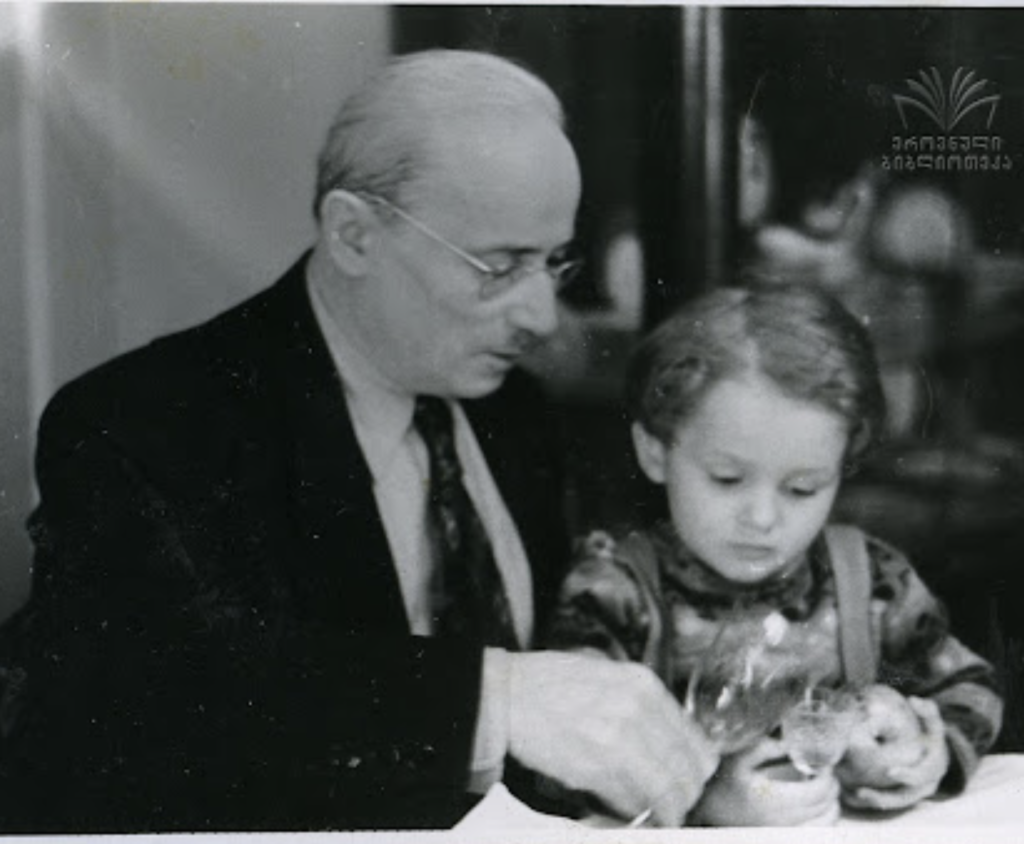



Professor Ioseb Jordania, whose name is associated with the conception and revival of reproductive medicine in Georgia, was born in 1895 in Gori, into the family of the prominent public figure Tedo Jordania. After graduating from the Classical Gymnasium of Gori, he continued his studies at the Military Medical Academy in Leningrad. Later, he began specializing in obstetrics and gynecology and became a clinical resident.
The young Georgian doctor soon achieved significant success in a neighboring country. At various times, he led the departments of obstetrics and gynecology at the Institutes for the Advanced Training of Physicians in Kuybyshev and Moscow.
His career reached its peak in 1942, when he was appointed Chief Gynecologist of the Red Army with the rank of colonel. This was the only gynecological service in military history, serving 8,000 women. He held this position until 1947, although it seems his true calling lay elsewhere.
In 1958, he founded in Tbilisi the first European Scientific-Research Institute of Female Physiology and Pathology, which, after his death, was named the Ioseb Jordania Institute of Human Reproduction. He developed theoretical and practical ideas for infertility research and formulated a plan to combat childlessness.
At Galeão Airport in Rio de Janeiro, a Douglas aircraft was preparing for takeoff when the pilot realized the plane’s nose wouldn’t turn. After an emergency maneuver, the plane crashed into the airport wall, crossed a nearby runway, and plunged into the ocean. The crash claimed 15 lives—one crew member and 14 passengers. Among them was the renowned Georgian gynecologist and reproductive specialist.
All passengers had life vests, but on board was a little girl without a ticket, who had no vest. The doctor selflessly gave the child his own life vest. He didn’t know how to swim, yet gave her a chance to survive. Just as heroically as he worked throughout his life for each patient, he died at the age of 67—saving the life.
Ioseb Jordania always stood out with innovative ideas, often thinking ahead of global medicine. An interview published in a magazine back in 1961 is proof of this vision.
Jordania wrote:
“The old fades, the new remains. That is the natural order, but if it’s possible to make life longer and richer, why not support nature? If man is created to live at least 150 years, then let him live full of strength—let him work, spend his time… Of course, this is a matter of the future, and maybe not such a distant future. For now, science is testing, searching for new ways to fight aging, solving both great and small problems… As for our institute, it primarily serves women. Fighting infertility and childless marriages, extending youth, and halting age-related changes—these are the issues our scientific staff work on, both in clinical and experimental departments.”
The work that his like-minded colleagues, including ourselves, continue to this day will always bear the name of Ioseb Jordania and serve to immortalize his legacy.